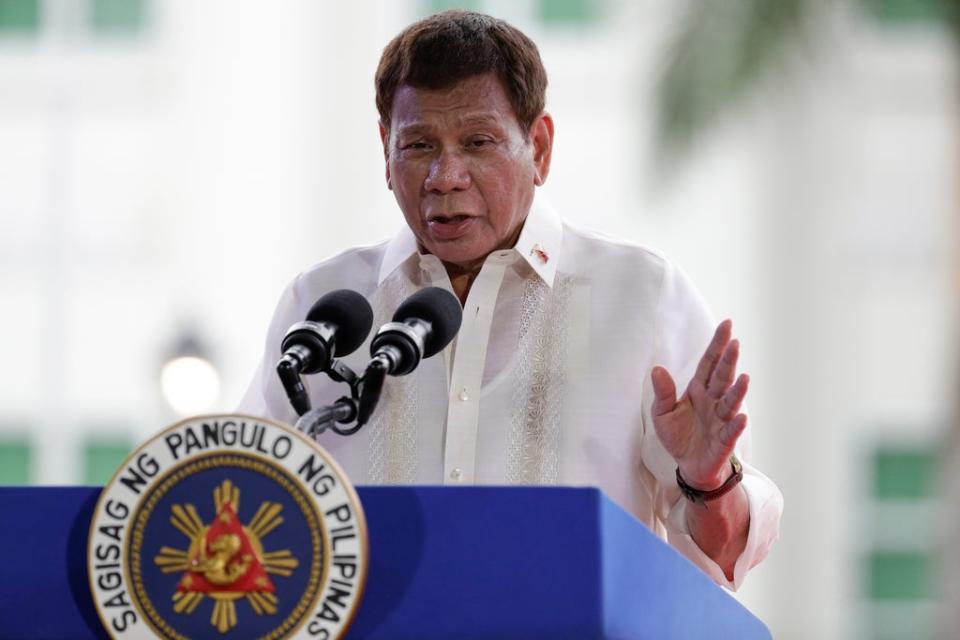Philippines’ Duterte says unvaccinated should be arrested if they leave homes: ‘It’s a national emergency’

Philippines president Rodrigo Duterte has said that people who have not taken the Covid-19 vaccine will be arrested if they flout stay-at-home orders.
In a televised address to the nation on Thursday, he urged community leaders to make sure unvaccinated residents remained confined to their homes as cases continue to mount due to the spread of the highly contagious Omicron variant.
The government placed the capital Manila and neighbouring regions under lockdown on Tuesday along with imposing stay-at-home orders for the unvaccinated population. Under the new restrictions, in-person classes and contact sports have been suspended while parks, churches and restaurants have been asked to operate at a lower capacity.
“Because it’s a national emergency, it is my position that we can restrain people who have not got their shots,” Mr Duterte said. “Look for those persons who are not vaccinated and just request them or order them, if you may, to stay put.
“If he refuses, if he goes out his house and goes around the community, he can be restrained. If he refuses, the captain is empowered now to arrest recalcitrant persons,” the president declared.
Vaccination in the Philippines is voluntary and more than 45 per cent of the country’s 110 million people have been fully inoculated. Under existing rules, unvaccinated people can only step out of their homes for essential trips.
The president said he was “appalled” at the large numbers of unvaccinated citizens, adding that he was “responsible for the safety and well being of every Filipino”.
In June, during the spread of the Delta variant, Mr Duterte threatened to imprison those who refused to get vaccinated.
So far, the Philippines has recorded more than 2.88 million Covid-19 cases and more than 51,700 deaths. It has confirmed 43 domestic and imported cases of the Omicron variant of the virus.
The island nation recorded the highest number of coronavirus infections since late September at 17,220 cases on Thursday.
In the wake of rising cases, the government's task force cancelled the “Black Nazarene” procession, which is one of the country's largest religious festivals celebrated in January.

